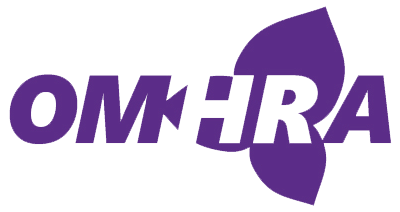
A lot of tools, software, and processes boast that they can increase productivity. But that overlooks a key factor: people. That’s because true productivity is only possible when the workforce is set up to succeed.
Employers, then, might benefit from thinking less about the granular metrics of efficiency, and more about ensuring their employees are passionate about their work and inspired to perform.
Right now, workplace stress is considered a pervasive issue. One study conducted in 2021 found that when people were distracted by worry and anxiety, the losses in business productivity were cumulatively totalled around $1,500 per employee annually. Conversely, when employees are happy, their productivity has been shown to increase by 12%.
Organizations can address productivity challenges by improving engagement through supportive solutions that aim to enhance employee wellbeing.
The problem of presenteeism in the workplace.
Disengagement can take many forms in the workplace, but one of the most prevalent is called presenteeism. Unlike absenteeism, where employees don’t show up at all, presenteeism occurs when people come to work but are not in a space to be productive, mentally or physically.
Presenteeism can be common in organizations that don’t enable employees to take adequate time off to recover from illness, or don’t have a culture of shared trust and responsibility where employees feel that they can reliably defer or delegate work. Flexible work schedules, however, can curb presenteeism. A recent survey of 10,000 desk workers found that those with schedule flexibility reported nearly 40% higher productivity and almost 65% improved focus.
Employers know there’s a big difference between employees who are simply present physically, and those who are truly present and engaged — and the financial impact is significant. Each year in North America, these disengaged employees cost the business economy more than $350 billion.
Mental health support is a potential solution to disengagement, since stress and burnout are directly related to mental health disorders and decreased productivity. Engaged employees are productive employees.
Engaged employees view the workplace as a space where they feel valued, validated, and respected. On the other hand, disengagement involves a lack of interest, motivation, and energy, which leads to substandard focus and effort. And research on engagement has actually found that a two-thirds majority of employees aren’t fully engaged.
Productivity has been shown to be 14% higher among engaged teams. But a more engaged and productive workplace has to comprehensively support employees.
This improved engagement starts with leadership. For employers and managers, that means establishing a relationship with employees based on a shared sense of purpose, and ensuring that people are equipped with the resources and opportunities to hone their skills, use their unique talents, and do their best work.
At the peer-to-peer level, teams within the organization need to have relationships based on mutual confidence, integrity, success, and trust. Not only does this empower employees to lean on each other when overcoming stress or recovering from a personal illness or issue, but it’s also transformative for the organization’s quality of service and reputation.
Creating the conditions for exemplary performance.
Of course, organizations can’t just mandate that employees be more productive. Instead, they have to institute a people-first culture and implement systems, processes, and incentives to empower productivity.
One way is by enhancing employees’ sense of autonomy and control over their time. A 2021 survey by the American Psychiatric Association found that 34% of employees see flexible hours as effective for boosting their mental health. It’s been well-established that a sense of freedom and independence can increase motivation and performance. This is further supported by a 2022 poll where 61% of the workforce ranked work-life balance and better personal wellbeing as “very important”.
Another way is by providing access to mental health support:
- 37% of employees want mental health resources;
- 32% want explicit encouragement from their leaders and managers to take care of their health; and
- 30% want their organization to actively champion employees taking their full allotment of paid time off.
For employers, it’s critical to listen to the workforce and take their requests seriously.
Fostering autonomy and productivity through virtual care.
Digital healthcare services are a way to help meet employees’ health and wellbeing needs by entrusting employees with control over their time and helping them achieve the work-life balance they desire.
TELUS Health offers holistic solutions that provide tools, resources, and ancillary services to help boost an overall sense of balance and wellbeing. The employee assistance program (EAP) provides an opportunity for people to talk about their personal and professional challenges with counsellors.
It’s a simple solution to a seemingly complex problem — employees who are happy and fulfilled are also the ones who accomplish the most at work.
Presented by

Archives
Categories
- Attraction and Recruitment
- Benefits
- Celebrating Success and Recognition
- Change Management
- Coaching and Conflict Resolution
- Culture
- Diversity, Equity and Inclusion
- Emotional Intelligence
- Employee Engagement
- Employee Performance
- Labour Disruption
- Mentoring
- OMHRA activities
- OMHRA Events
- Psychological health and safety of the HR professional
- Recruitment
- Recruitment and Retention
- Retention
- Uncategorized
- Unique ideas for recruiting in a tight job market
- Wellness
Recent Posts
- How Leadership Development Coaching Provides Better Outcomes
- Better Leadership: Focus on a Coach Approach
- Creating a Psychologically Safe Workplace
- Group Health Insurance – The Impact of Preferred Pharmacy Networks on Employees’ Mental Health
- Provide Real Support For Your Mid-Career Team’s Psychological Resilience
